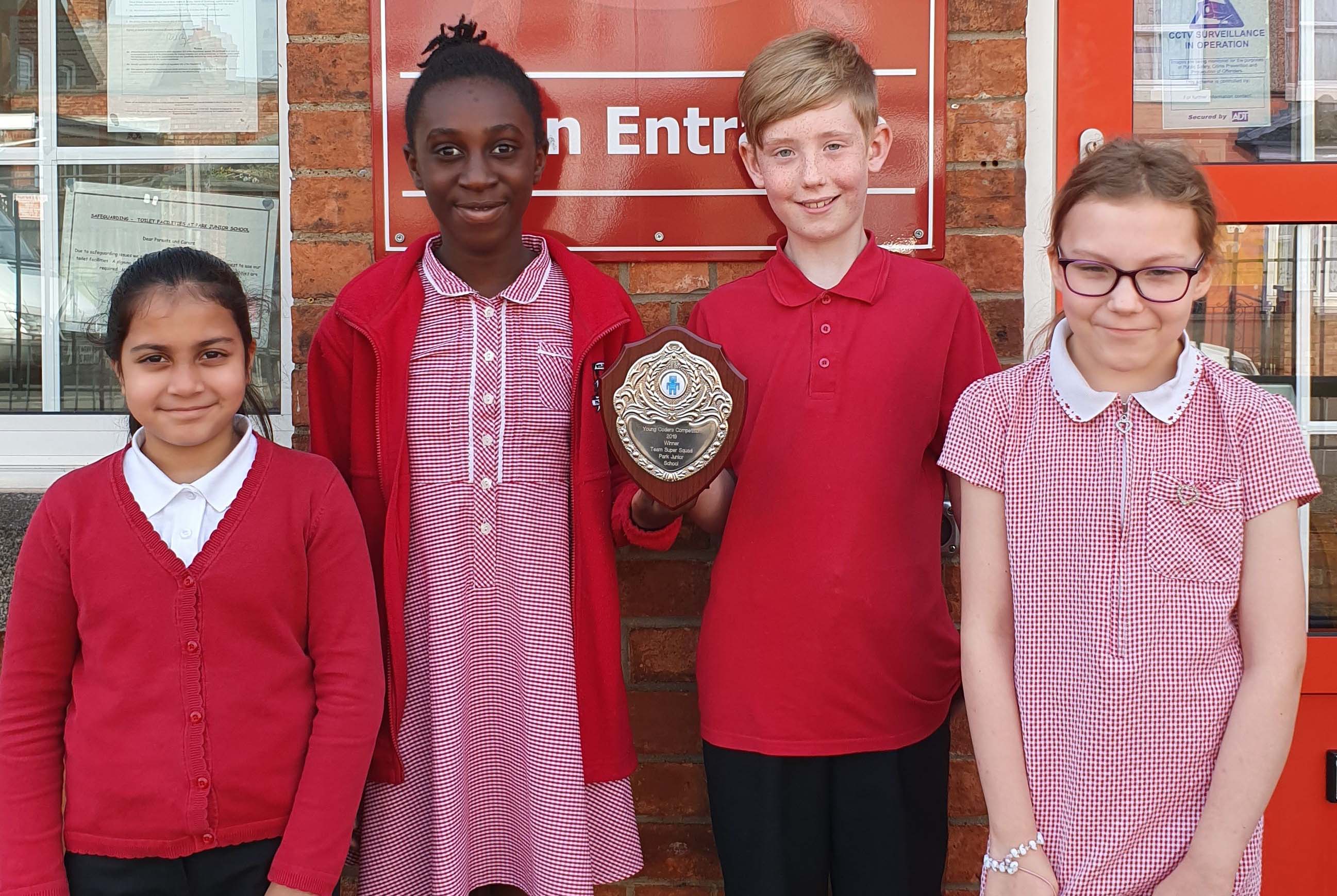
Computer whizz-kids from Wellingborough have dominated a national school computer coding contest that is co-organised by the University of Northampton.
Two teams of pupils from Park Junior School scooped first prize and the runners-up title in the Young Coders Competition 2019 after creating video games using which followed the set theme of ‘superheroes who use their powers to do good’.
The winning team, Super Squad, came up with a game called Cut Out Ocean Plastics, which features a character called Plastic Pollution Girl, who can clean up oceans using kinesis.
All the teams used Scratch software to develop their games, and then created two-minute videos to explain how it works and the rationale behind it.
You can watch Super Squad’s video, below.
Super Squad members were Year 5 pupils, Nicholas Rostron, Simone Matiba, Ria Mistry and Amy Gara – pictured above.
Joint runners-up in the contest were Team Cha-Ching, which comprised Year 4 and 6 pupils Noah Read, Sorin Geanta, Logan Moody and Aaliyah Hinks. They impressed judges with their Cash Catcher game which focused on the importance of looking after money and giving to charity.
You can watch Team Cha-Ching’s video, below.
Gary Hill, Head of Computing at the University, said: “We were delighted with the quality of all the competition entrants’ work. Every team came up with some incredibly imaginative ideas for their games and showed great technical ability to create them in Scratch and then produce their explanatory videos.
“We hope the experience will inspire them to carry on coding throughout their time in education and beyond.”
Organised by the University of Northampton, the Worshipful Company of Information Technologists and Leicestershire Education Business Company, the Young Coders Competition aims to tackle a national shortage in coding skills. It does this by encouraging eight-to-11-year olds to have fun coding and hopefully spark a lifetime interest in the skill.
This year the organisers supplied a package of 12 sessions for teachers to teach coding to their pupils, without having to do any preparation or have any previous coding knowledge. This was to help address a major gap in primary school teacher training, with very few having being taught coding.
All views and opinions are the author's and do not necessarily reflected those of any organisation they are associated with. Twitter: @scottturneruon
No comments:
Post a Comment